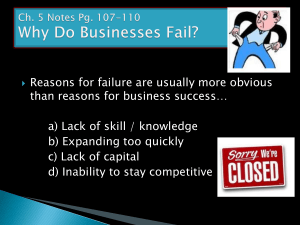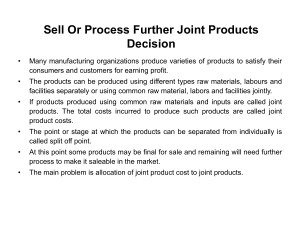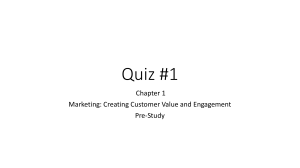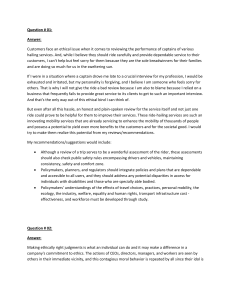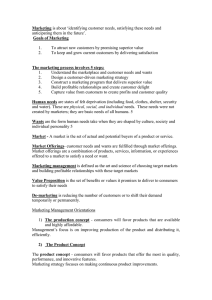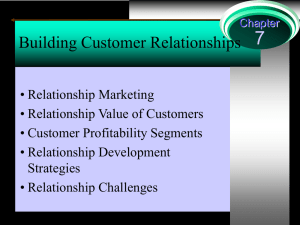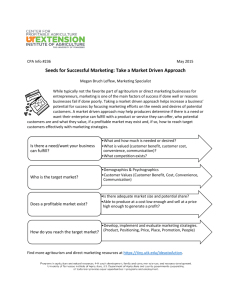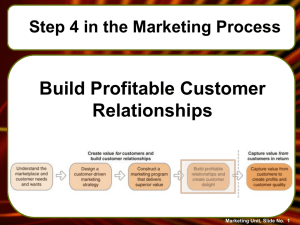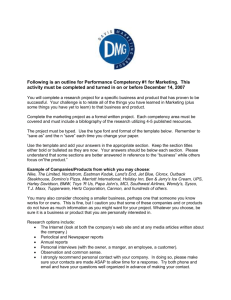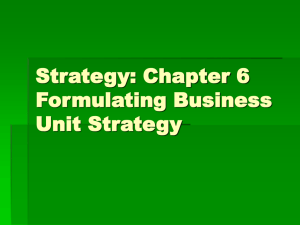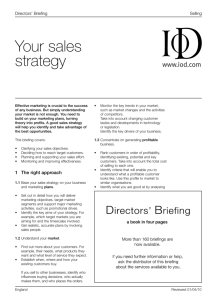Basic Economic Development Strategies
advertisement
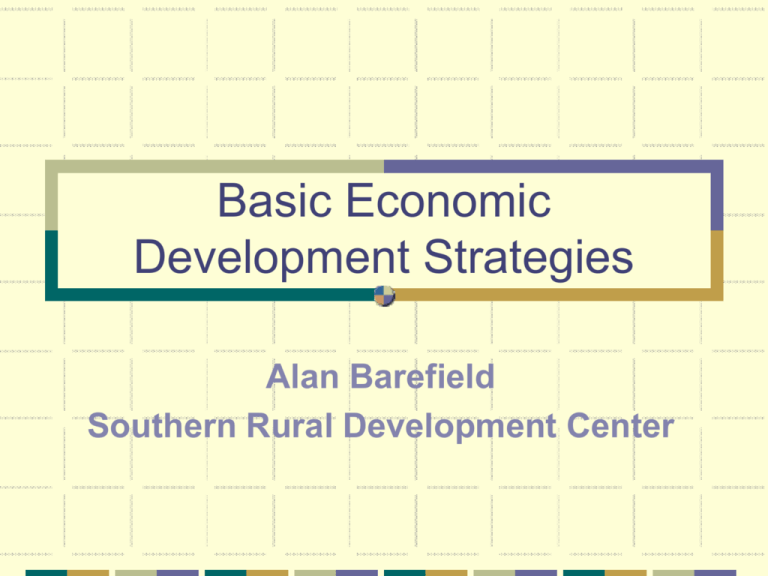
Basic Economic Development Strategies Alan Barefield Southern Rural Development Center 10. Create an Ongoing Development Process 1. Begin/Continue the Process 2. Engage the Community and Legitimize the Process 9. Celebrate Your Success 8. Evaluate the Overall Effort 7. Implement the Plan Ten Steps: CARE For Your Future 3. Form an Organizational Structure 4. Conduct Community Assessments 6. Seek Feedback & Commitment from the Community 5. Develop a Strategic Vision and Action Plan Economic Development Can Mean Many Things To Different People What is Economic Development? The Economic Development Administration (www.doc.gov/eda) defines economic development as: Economic development is fundamentally about enhancing the factors of productive capacity - land, labor, capital, and technology - of a national, state or local economy. Difference Between Economic Development and Economic Growth •Development is a qualitative change, which entails changes in the structure of the economy, including innovations in institutions, behavior, and technology. •Growth is a quantitative change in the scale of the economy - in terms of investment, output, consumption, and income. 1Roger Vaughan and Peter Bearse, "Federal Economic Development Programs: A Framework for Design and Evaluation," in Robert Friedman and William Schweke (editors), Expanding the Opportunity to Produce: Revitalising The American Economy Through New Enterprise Development (Washington: DC, 1981), 309. back to text Definition Interpretations Economists Economic development is an issue of economic growth. Business Leaders Economic development is the application of public policy to increase U.S. or regional competitiveness. Government Activists Economic development is a code phrase for industrial policy. Definition Interpretations Environmentalists Economic development should be sustainable development that harmonizes natural and social systems. Labor Leaders Economic development is a vehicle for increasing wages, benefits, basic education, and worker training. Community-based Leaders and Professionals Economic development is a way to strengthen inner city and rural economics in order to reduce poverty and inequality. Levels of Economic Growth Economic Growth Deals with economies Growth is profitable Shared Economic Growth Deal with equity Is fair for all involved Sustained Economic Growth Addresses the long-term consequences Is healthy for the community and the environment RCCI Principles Economic development is not a bad thing Profitable growth is necessary for sustainability Shared and equitable growth strengthens communities Long-term sustainable growth ensures our communities will be here for the next generation Social Justice, Economic Opportunity, Income Equality The Development Conflict The Property Conflict “Green, profitable and fair” (sustainable development?) Overall Economic Growth & Efficiency Environmental Protection The Resource Conflict Conflicting Goals for Planning Source: Scott Campbell: Green Cities, Growing Cities, Just Cities? JAPA Benefits of Strategic Planning Outline steps to follow Promote efficient use of resources Improve coordination Build concensus Increase public awareness Strengthen competitive position Encourage forward-thinking “CARE For Your Economy Sources of Jobs/Income Creation Attraction Retention Expansion Creation Strategies Provide a supportive entrepreneurial climate Provide technical training and assistance Host a one-stop permit center Be knowledgeable of capital sources Develop a small business incubator program Attraction Strategies Recruit compatible new businesses Target specific sectors and types of industries Location factors Markets Raw materials Industrial site Financial capital Labor Transportation Utilities Other factors Retention & Expansion Strategies Goal is to retain and expand existing businesses Firm visits to assess needs and opportunities Immediate followup – especially “Red Flags” Response and direct assistance to firms Local Economic Development Strategies Home Based and/or Micro Businesses Main Street Revitalization Manufacturing Value-added Agribusiness Retiree Recruitment Tourism Development Service Business Development E-commerce For Success: Think Strategically Forward thinking Address the need to survive in a changing environment Nothing mystical – It just involves: Hard work Thought Communication Cooperation Applies to communities and private sector Key role is data and communication Observations/Lessons Learned Location still matters (sometimes) Know your competition Attributes of successful committees Positive attitude Professional Use all resources Communication Persistent Organized plan and defined roles Accountable to the community
